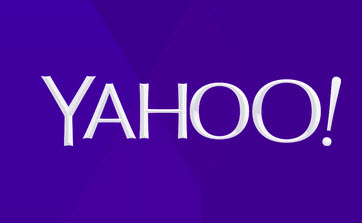Inside Microsoft and Yahoo's search deal make-over

Yahoo didn't end up completely wriggling out of its 10-year search pact with Microsoft, as a number of Microsoft watchers had been expecting to happen this month. But the search partnership between the two has been altered.

In announcing the updated pact, Yahoo CEO Marissa Mayer was careful to thank Microsoft CEO Satya Nadella and team for "working closely with us over the past few months to rejuvenate our partnership." (A partnership of which Mayer has been no fan -- at least in its original form.) But she also noted that "search has, and will continue to be, an incredibly important part of Yahoo."
According to the original Microsoft-Yahoo deal, forged by then-Microsoft-CEO Steve Ballmer and former Yahoo CEO Carol Bartz, Microsoft was exclusively powering Yahoo search on the desktop and Yahoo would become the ad sales force for Microsoft's premium properties.
Many forget, but the original deal didn't preclude Yahoo from continuing to do work on search inside the company. Yahoo maintained the rights to its own core search technologies, even though Microsoft had the right to look at Yahoo's code, under the original search partnership terms. And Bing wasn't the exclusive engine for Yahoo on mobile devices, though it still was one of the main, if not the main engine there.
Yahoo has been working quietly for over a year to attempt to find a way back into the search game. Yahoo has been dabbling in a variety of search projects focusing on stream, shopping and mobile/contextual search and search personalization, according to various reports.
Under the renegotiated Microsoft-Yahoo deal, Yahoo still will serve up Bing search results and Bing ads for a "majority" of its desktop search traffic. But now Yahoo can "enhance the search experience on any platform," which means Yahoo can use other back-end search providers on the desktop, and to continue to do so in mobile.
On the ad side, the original deal called for Yahoo's salesforce to be the exclusive one selling the Microsoft-Yahoo search and advertising platform to advertisers. (Microsoft continued selling its own display ads, as did Yahoo.) But now, Microsoft becomes the exclusive salesforce for ads delivered by Bing Ads and Yahoo is the exclusive salesforce fro Yahoo's Gemini ads.
How much will these changes affect Microsoft, its online advertisers and Bing's share of the search engine moving forward? It's hard to say.
Yahoo already has been trying to gain more search mind share with deals like the one it announced last year with Mozilla for Firefox. Though headlines trumpeted that Yahoo, not Google, would be powering Firefox's search, the reality is that Bing was (and still is, as far as I know) the engine powering Firefox search.
It will be interesting to watch the comScore numbers in the coming months to see if the current trend of nearly every percentage point of Bing's search share gain continues to come at Yahoo's search share expense continues, as has been the case for the past few years.
It also will be interesting when and how Yahoo diversifies its search back end. Will the company try to go with Google? Are there other Web search engine providers that will offer Yahoo better financial terms for its traffic? Does Yahoo have another potential escape clause built into its updated Microsoft search deal?
When Microsoft originally signed the search deal with Yahoo, the company desperately needed search traffic in order to built up its ad platform. Though Bing is still a distant second to Google in the Web search space now, five years later, Microsoft may have gotten much of what it originally wanted and needed from the Yahoo relationship.
Update: April 20: According to an 8-K filing from Yahoo, either Microsoft or Yahoo has the right to terminate the updated search deal via written notice. (Thanks to Bloomberg for pointing out the filing.)
I had wondered if the termination piece of this agreement had been updated, but couldn't find anyone to comment a week ago. But now we know. From the filing:
"The term of the Search Agreement remains 10 years from its commencement date, February 23, 2010, subject to earlier termination as provided in the Search Agreement. Pursuant to the Amendment, on or after October 1, 2015, either Yahoo or Microsoft may terminate the Search Agreement by delivering a written notice of termination to the other party. The Search Agreement will remain in effect for four months from the date of the termination notice to provide for a transition period, however, Yahoo's Volume Commitment will not apply in the third and fourth months of this transition period."